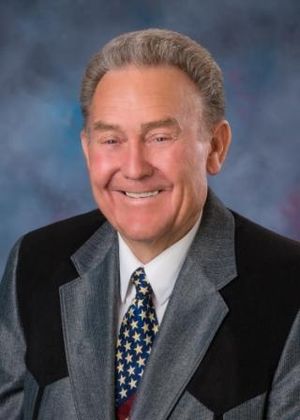Abortion debate heats up in Idaho Statehouse; full story
Idaho lawmakers ratcheted up the abortion debate today, as one state representative said he believes rape and incest are unlikely to result in pregnancy, and a party-line vote backed one of two bills being championed in the Idaho Legislature this year by anti-abortion groups.
The bill in question would require women seeking abortions to be provided with a state-compiled list of providers who could provide them with free ultrasounds, including seven crisis pregnancy centers, and told they have a right to a free ultrasound and to hear a fetal heart monitor. Backers said it’ll make women more likely to decide against abortion; the measure makes no exception for victims of rape or incest.
Rep. Pete Nielsen, R-Mountain Home, said, “Now, I’m of the understanding that in many cases of rape it does not involve any pregnancy because of the trauma of the incident. That may be true with incest a little bit,” he added.
His comment was directed to Angela Dwyer of Stanton Healthcare, a crisis pregnancy center, who was testifying in support of the bill. She responded, “We had two young ladies come to us that the baby was the result of rape. One chose to keep the baby, the other chose to adopt the baby.”
Nielsen stood by his remarks after the hearing, saying, “It doesn’t happen as often as it does with consensual sex, because of the trauma involved.” He said, “That’s information that I’ve had through the years. Whether it’s totally accurate or not, I don’t know. In a rape situation, there’s a lot of trauma,” which he said he believes can prevent pregnancy. “That doesn’t mean it will. I believe that’s the case.”
Asked how he knew that, Nielsen said, “I read a lot of information. I have read it several times. … Being a father of five girls, I’ve explored this a lot.”
Rep. Melissa Wintrow, D-Boise, said, “This is the problem with our Legislature – we’re not making decisions based on scientific fact, we’re making it based on conjecture and opinion. What that kind of a statement does to somebody who’s been victimized violently – it’s ignorant, it’s insensitive,” she said. Wintrow, who’s been involved in work with victims of sexual violence, said, “That is the problem with our Legislature. We don’t consider the data. It’s just our opinion.”
Hannah Brass Greer, legislative director for Planned Parenthood in Idaho, said, “That’s obviously, medically, scientifically inaccurate. That type of comment we’ve heard before, when politics get in the way of medical care.” She said such statements point a finger of blame at rape and incest victims who become pregnant, suggesting they must have consented to the attacks. “It’s harmful on so many levels.”
Numerous people spoke out for or against the bill ultrasound bill in a hearing that stretched for two and a half hours. Kerry Uhlenkott, legislative coordinator of Right to Life of Idaho, told the committee that Idaho’s crisis pregnancy centers report that “90 percent of their clients choose life for their babies after viewing the ultrasound.”
Opponents said the bill set no standards for the providers of the free ultrasounds, potentially setting the state up for liability for advertising free services that aren’t up to par. “My neighbor could even be listed, and they could have an ultrasound machine in their house,” said Rep. Paulette Jordan, D-Plummer. “It reminds me of being a banker and then being required to give them a list of all the loan sharks.”
Rep. Vito Barbieri, R-Dalton Gardens, said he’s a board member of Open Arms Pregnancy Care Center in North Idaho and it was required to comply with existing laws before offering medical procedures like ultrasounds. “The law is already in place,” he said.
Rep. Ron Nate, R-Rexburg, lead sponsor of the bill, said, “To deny women this information is paternalistic. … This bill evidences true trust in women.”
Nielsen declared, “Scientific, not just religious, teachings proves beyond a doubt that the fetus is a live, living individual. I can’t believe that caring and scientific information would result in bad and inaccurate information.”
He noted that Idaho was the fourth state to give women the vote. “That’s how much we think of our women,” he said. “We love them and we want to take care of them.”
Wintrow said, “I have no problem if a group wants to organize and provide free health care services. That’s within everybody’s rights.” But she said the “state should not be requiring that advertising” to be provided when a patient goes to their licensed health care provider.
Barbieri said, “When that ultrasound shows a heartbeat, it is very difficult for an expectant mother to assume that that is not a separate life.”
The bill, HB 516, cleared the House State Affairs Committee on a party-line vote with only the panel’s four minority Democrats objecting; it now moves to the full House for a vote.
The other bill being pushed this session by anti-abortion groups is SB 1349, which would ban fetal tissue from being donated after an abortion, either for organ donations or medical research. The measure, sponsored by the group Idaho Chooses Life, has 18 legislative co-sponsors, all Republicans; it’s awaiting a hearing in a Senate committee.

